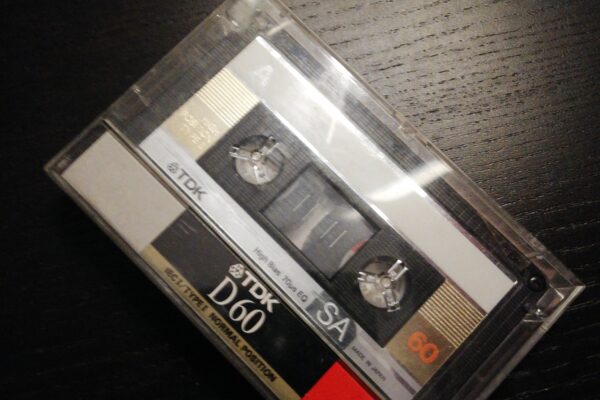The Big Four, don’t these need to become tougher dogs again ?
In my holiday I read in the Dutch Financial Times on 28 July 2018 about the accountant that has become too much consultant. He should become more ‘audit only’ again. Well, read the story (in Dutch by the way) yourselves, I cannot tell this better. My story is a different one, since I have my companies – and until now that we read about argues within the accountancy about tracing fraud, is it or isn’t it her duty – we believe strongly that it will be just a matter of time before these stories will become one story. We will try to explain here, according to history and examples from our own work. We hope that when accountancy professionals read this, they will become inspired to get in touch with us for more information.
Kyoto protocol
At first, the history lies in the ratification of the so-called Kyoto protocol in 1997. Almost all countries came to an agreement to fight against climate change by developing climate projects. And to develop such projects, the first steps were to develop financial-economical systems. Since then, to date, those systems have been implemented worldwide, by cooperation of technical engineering experts and financial specialists. In a nutshell, the CO2 emissions are calculated for an existing situation (this is usually ‘doing nothing’), and determine a climate project by which CO2 emissions will be reduced in a future situation. The CO2 emission reduction is calculated by deduction of these two situations (before and after), and secured in a monitoring plan. By following that monitoring plan year after year for accountability of the CO2 emission reductions, climate projects are justified in so-called approved methodologies beforehand. These methodologies are the only concepts that could be followed. By accredited organizations – these are the auditors that do validation and verification, and are being controlled and periodically checked by UN climate buro – all projects, inclusive the methodologies, have to be validated and verified. This system ensures with some certainty proximity of the intangible reality of CO2 emissions and its reductions, and that can be worked with verified units (always in tonnes of CO2 equivalents). That is done on markets, of which in Europe the most common is the EU ETS ((EU Emission Trading Scheme, active since 2005), with tradable units for compliance, shortened to CER. And thereafter, voluntary markets have emerged, of which for instance Gold Standard with units GS VER. For instance KLM uses in marketing Gold Standard for offering compensation of air travel.
Let us call those markets CO2 business.’ In these markets,. RDP Development BV operates as advisory/consultancy for developers and owners of climate projects. And we advise and help coordinating the processes of certification, monitoring and verification. Surprisingly or not, don’t you think that sounds like the accountancy? The only difference is that we cannot mix up the roles. The system performs by that the accredited independent and strict auditor validates and verifies. Our customers internally aren’t equipped enough (in most cases this is not their core-activity) to guide these processes year after year and are in need of coordination. RDP Development are specialized coordinating consultants.
We are consultant specialized in the climate project sectors 01 and 13.
We successfully help owners of projects to coordinate their certification and verification (testing, monitoring and control). Please feel free to take a tour around our website www.global-climate.nl for credentials. It is in Dutch language, reason for it is we work together with firms from the Netherlands that are active as suppliers and have technical know-how in the sectors, These relationships are in parallel attractive for credit and capital investment opportunities.
CMA is not the market… but CUA
Coming back to the quarrying accountants, although not equal, strikingly enough words (abbreviations) lead to similarities: CMA stands for Carbon Mandate Agreement, which im the CO2 business establishes the relationship between project owner and consultant. However, CMA also stands for Competition and Markets Authority in United Kingdom, the Dutch AFM. We invented the name CUA, that stands for Carbon Upgrade Agreement. There are a lot of owners of CMA projects that are lacking a consultant nowadays, and don’t have the faintest clues what to do and their CO2 emissions reductions still represent value. So ‘upgrade’ them is our slogan.
We think it is useful to illustrate along our CUA assignments as example of successful business, of which we expect the market to grow – because the CO2 business has been loaded with controlling mechanisms.
Work as example
One of our customers active as project developer, received our proposal in October 2017 for a CUA assignment. Due to economic reasons, the contract was awarded in February 2018. As core-activity she performs PPAs (Power Purchase Agreements) with institutions under local regulations. For one of their climate projects she generates green electricity for the country Honduras since October 2015, having a concession for 30 years to deliver electricity to the grid by hydropower, substituting coal- and oil-fired power plants. Under a CMA our customer had this certified as a climate project in 2016, which was costly enough to them (after having started this process in 2014). As biggest component of the CUA assignment the first operational period – with parts of the construction – had to be formalized in a Monitoring Report. That has been verified by an auditor, that was selected by RDP Development BV. In July 2018 it was approved in their Verification Report. With that, over 25,000 ton CO2e was checked and approved by auditor independently. And only after the Gold Standard Foundation with their last thorough reviews screened these Reports again, the units may be used as carbon credits for voluntary compensation of the CO2 emissions as of September 2018. At that time our customer was enabled economically long before in March 2018, to enter into contract with the first Carbon Banking organization in the Netherlands developed by RDP Development BV.
Challenges for the ‘tougher dogs’ ?
To express with this example that the CO2 business is loaded with controlling mechanisms, I ask myself this, are accountants doing just as much to trace frauds as our business? Because one thing should be clear. A lead time of a CUA (12 months after quotation, 6 months after contract), should point out that everything is being done to avoid fraud. But don’t be mistaken by us, we would also desire – just like our customers – to deliver the assignment sooner than this.
As conclusion two questions to accountancy professionals:
Question 1: Do you know whether in the accountancy it is just as complicated and enduring process, assuming there is just as little budget for the auditing?
And question 2, we possess a lot of technical knowledge and wide network at certifications and for verifications. Would you accept the challenge to look around in RDP Development BV for a while?
15 January 2019 (English translation of blog 28 August 2018)
RDP Development BV
ir. (Rogier) van Meenen




